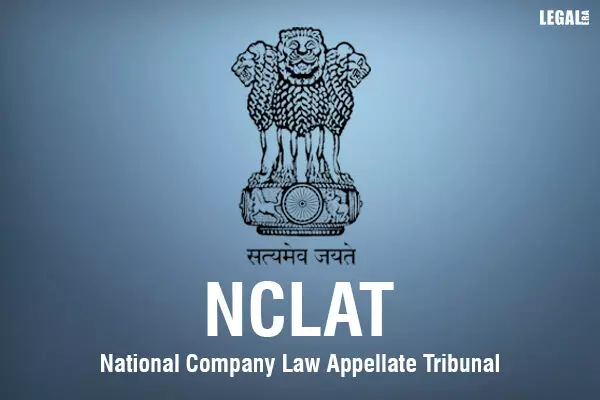- Home
- News
- Articles+
- Aerospace
- Artificial Intelligence
- Agriculture
- Alternate Dispute Resolution
- Arbitration & Mediation
- Banking and Finance
- Bankruptcy
- Book Review
- Bribery & Corruption
- Commercial Litigation
- Competition Law
- Conference Reports
- Consumer Products
- Contract
- Corporate Governance
- Corporate Law
- Covid-19
- Cryptocurrency
- Cybersecurity
- Data Protection
- Defence
- Digital Economy
- E-commerce
- Employment Law
- Energy and Natural Resources
- Entertainment and Sports Law
- Environmental Law
- Environmental, Social, and Governance
- Foreign Direct Investment
- Food and Beverage
- Gaming
- Health Care
- IBC Diaries
- In Focus
- Inclusion & Diversity
- Insurance Law
- Intellectual Property
- International Law
- IP & Tech Era
- Know the Law
- Labour Laws
- Law & Policy and Regulation
- Litigation
- Litigation Funding
- Manufacturing
- Mergers & Acquisitions
- NFTs
- Privacy
- Private Equity
- Project Finance
- Real Estate
- Risk and Compliance
- Student Corner
- Take On Board
- Tax
- Technology Media and Telecom
- Tributes
- Viewpoint
- Zoom In
- Law Firms
- In-House
- Rankings
- E-Magazine
- Legal Era TV
- Events
- Middle East
- Africa
- News
- Articles
- Aerospace
- Artificial Intelligence
- Agriculture
- Alternate Dispute Resolution
- Arbitration & Mediation
- Banking and Finance
- Bankruptcy
- Book Review
- Bribery & Corruption
- Commercial Litigation
- Competition Law
- Conference Reports
- Consumer Products
- Contract
- Corporate Governance
- Corporate Law
- Covid-19
- Cryptocurrency
- Cybersecurity
- Data Protection
- Defence
- Digital Economy
- E-commerce
- Employment Law
- Energy and Natural Resources
- Entertainment and Sports Law
- Environmental Law
- Environmental, Social, and Governance
- Foreign Direct Investment
- Food and Beverage
- Gaming
- Health Care
- IBC Diaries
- In Focus
- Inclusion & Diversity
- Insurance Law
- Intellectual Property
- International Law
- IP & Tech Era
- Know the Law
- Labour Laws
- Law & Policy and Regulation
- Litigation
- Litigation Funding
- Manufacturing
- Mergers & Acquisitions
- NFTs
- Privacy
- Private Equity
- Project Finance
- Real Estate
- Risk and Compliance
- Student Corner
- Take On Board
- Tax
- Technology Media and Telecom
- Tributes
- Viewpoint
- Zoom In
- Law Firms
- In-House
- Rankings
- E-Magazine
- Legal Era TV
- Events
- Middle East
- Africa
NCLAT: Mere Allocation of Meagre Amount Cannot be a Ground to Question the Resolution

NCLAT: Mere Allocation of Meagre Amount Cannot be a Ground to Question the Resolution
The National Company Law Appellate Tribunal (NCLAT) by its division bench of Justice Ashok Bhushan (Chairperson) and Barun Mitra (Technical Member) while adjudicating an appeal preferred in the matter of Pani Logistics vs. Vikas G. Jain & others. has observed that the allocation in the plan to the creditors can be questioned when the plan value earmarked for them is less than the liquidation value. Mere allocation of meagre amount cannot be a ground to question the resolution plan.
In the present case, an appeal was filed by the Appellant raising objections to the Resolution Plan which was rejected by a separate order passed by the Adjudicating Authority dated 6 February, 2023.
The Appellant is an Unsecured Financial Creditor who had vote share in the Committee of Creditors (CoC) of 0.264%. The plan was approved by the CoC with more than 99% vote share.
The Learned counsel for the Appellant while challenging the order submitted that the objections with regard to partial rejection of the claim of the Appellant and other creditors were pending before the Adjudicating Authority, the plan ought not to have been approved.
It was further submitted that several materials had come in to light which indicated that the Asset Reconstruction Company was a fraudulent company which was involved in several illegal activities. Hence, it was submitted that a fraudulent company should not be allowed to take over the Corporate Debtor.
The bench remarked that the commercial wisdom of the Committee of Creditors in approval of a resolution plan was to be given due regard is settled law of the Hon’ble Supreme Court in Essar Steel India Ltd. Committee of Creditors vs. Satish Kumar Gupta. Approval of Resolution Plan by the Adjudicating Authority can be questioned on a limited ground that plan is violative of any statutory provision including provision of Section 30 Sub-section (2) of the Insolvency and Bankruptcy Code, 2016 (IBC).
The NCLAT noted that the case at hand does not involve a claim that there is less value in the liquidation value than what should be paid to the other creditors/operational creditors.
In this regard, the bench noted, “the allocation in the plan to the creditors can be questioned when the plan value earmarked for them is less than the liquidation value. Mere allocation of meagre amount cannot be a ground to question the resolution plan.”
Hence, the bench opined that the direction issued by Adjudicating Authority takes care of the pending applications and no interference was required and it accordingly, dismissed the appeal.



